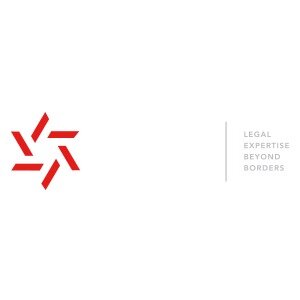Best Franchising Lawyers in Qatar
Share your needs with us, get contacted by law firms.
Free. Takes 2 min.
Or refine your search by selecting a city:
List of the best lawyers in Qatar
About Franchising Law in Qatar
Franchising in Qatar is a lucrative business opportunity thanks to the country's economic growth and strategic location. Over the years, it has attracted various international brands seeking to establish a presence in the region. The Qatari market is regulated, ensuring that both franchisors and franchisees adhere to specific standards to maintain fair business practices. While there isn’t a specific franchising law in Qatar, franchising activities fall under the commercial agency law, requiring compliance with several regulations and licensing procedures.
Why You May Need a Lawyer
Engaging in franchising can be complex, requiring careful navigation of legal obligations. Here are some common situations where legal assistance might be necessary:
- Navigating Qatari commercial agency laws when establishing a franchise.
- Drafting or reviewing franchise agreements to ensure alignment with local regulations.
- Understanding intellectual property rights to protect brand assets in the Qatari market.
- Assisting in negotiations between franchisors and franchisees.
- Handling disputes or breaches of contract effectively within the legal framework.
Local Laws Overview
Qatari franchising operates under the umbrella of existing commercial and agency laws. Key aspects include:
- Agency Law: It affects franchising since a franchise agreement is often considered a form of commercial agency.
- Commercial Registration: All businesses, including franchises, must register with the Qatar Ministry of Commerce and Industry.
- Intellectual Property Protection: Ensuring trademarks and other IP rights are protected under local laws.
- Contractual Obligations: Adherence to Sharia law principles, especially for conflict resolution.
Frequently Asked Questions
What is franchising?
Franchising is a business model where the franchisor permits the franchisee to use its brand, know-how, and operations model in exchange for a fee.
Is there a specific law governing franchising in Qatar?
No, but franchising is governed by commercial agency law and other relevant regulations.
Do I need a local partner to start a franchise in Qatar?
Yes, according to local laws, foreign businesses typically require a local partner or sponsor unless working in certain free zones.
How do I protect my brand in Qatar?
Register your trademarks and intellectual property with the appropriate Qatari authorities to ensure protection against infringement.
What fees are associated with franchising in Qatar?
Fees include registration, intellectual property costs, and franchising fees agreed upon contractually, often involving initial and ongoing royalties.
How long does it take to establish a franchise in Qatar?
The timeline can vary based on compliance with registration requirements and obtaining necessary approvals, generally ranging from a few months to a year.
Can a franchise agreement be terminated in Qatar?
Yes, but it depends on the terms of the agreement and adherence to local contract laws, often requiring legal counsel.
Are there restrictions on the types of franchises allowed in Qatar?
No specific restrictions, but the franchise must align with local culture and legal standards, especially regarding prohibited content or services.
What role does the Qatari Ministry of Commerce and Industry play in franchising?
The Ministry oversees business registration, compliance, and the enforcement of commercial laws, including those related to franchises.
How can disputes be resolved in franchise agreements?
Disputes are often resolved through negotiation, arbitration, or the local courts, depending on the agreement terms and Sharia principles.
Additional Resources
Consider these resources for more information on franchising in Qatar:
- Qatar Ministry of Commerce and Industry: Oversees business regulations, registrations, and compliance.
- Qatar Financial Centre (QFC): Offers insights and resources for businesses in the financial sector.
- Qatar Chamber of Commerce: Provides networking opportunities and regulatory advice.
- Law Firms Specializing in Franchising: Professional advice tailored to the franchising business model.
Next Steps
If you are considering legal assistance for franchising in Qatar, follow these steps:
- Research local law firms with expertise in franchising and commercial law.
- Prepare all relevant business documents and information before your consultation.
- Schedule a consultation to discuss your specific needs and legal requirements.
- Consider continuous legal counsel to maintain compliance with evolving regulations.
Having professional guidance ensures your franchising venture in Qatar is both successful and compliant with local laws.
Lawzana helps you find the best lawyers and law firms in Qatar through a curated and pre-screened list of qualified legal professionals. Our platform offers rankings and detailed profiles of attorneys and law firms, allowing you to compare based on practice areas, including Franchising, experience, and client feedback.
Each profile includes a description of the firm's areas of practice, client reviews, team members and partners, year of establishment, spoken languages, office locations, contact information, social media presence, and any published articles or resources. Most firms on our platform speak English and are experienced in both local and international legal matters.
Get a quote from top-rated law firms in Qatar — quickly, securely, and without unnecessary hassle.
Disclaimer:
The information provided on this page is for general informational purposes only and does not constitute legal advice. While we strive to ensure the accuracy and relevance of the content, legal information may change over time, and interpretations of the law can vary. You should always consult with a qualified legal professional for advice specific to your situation.
We disclaim all liability for actions taken or not taken based on the content of this page. If you believe any information is incorrect or outdated, please contact us, and we will review and update it where appropriate.
Browse franchising law firms by city in Qatar
Refine your search by selecting a city.
















